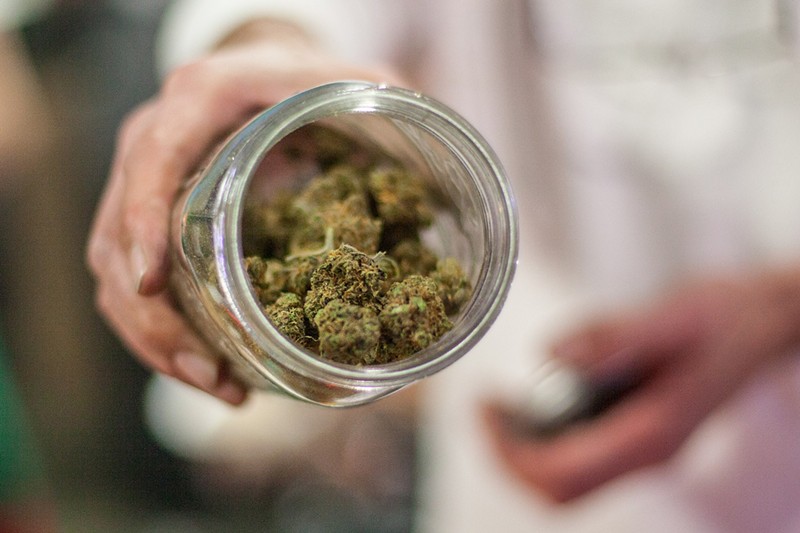The Colorado Marijuana Enforcement Division has backed away from adding expiration date requirements to the majority of dispensary products.
As of this year, marijuana vape cartridges sold in Colorado were required to have expiration dates, but there are no such requirements for flower, concentrate or edibles. The MED had planned to require six-month expiration dates for those products in its most recent round of marijuana rule revisions, but ultimately abstained.
"In the final adopted rules, expiration dates were not incorporated as previously proposed," a memo from the MED reads.
However, marijuana regulators are still moving forward with regulations that will highlight a product's shelf life for consumers. According to the MED, by January 1, 2024, all commercial marijuana intended for inhalation must have a nine-month "use-by date" on its labels before arriving at dispensaries — but that won't stop stores from selling products past the nine-month limit.
"Unlike the initial proposed rules, the adopted rules do not prohibit a store from selling regulated marijuana past its use-by date, but does require the store to notify the patient or consumer if a product is past its use-by date," the MED memo adds. "Additionally, the Division intends to monitor data regarding regulated marijuana use-by dates following implementation of these rules, and will implement any necessary changes in the future."
The MED had initially planned to require marijuana growers and product manufacturers to add six-month expiration dates on their packaging unless they presented scientific research proving that a different length of time was more appropriate. The proposed expiration rules were based on recommendations from a science and policy committee overseen by the MED and the Colorado Department of Public Health and Environment, but received pushback from marijuana business owners, who argued that the rules were introduced too late in the rulemaking process.
Marijuana industry representatives also took issue with the six-month period, a suggestion the MED admitted wasn't based in science, as well as a rule requiring businesses to pay for any research supporting a longer expiration date.
During rulemaking hearings, MED officials said they pushed an expiration date to further protect consumers from degrading and potentially toxic marijuana products, which are prone to mold and microbial growth after harvest or manufacturing. According to the MED and the Colorado Attorney General's Office, this has resulted in a growing number of cases involving potentially adverse health effects for consumers.
The MED approved an extensive catalogue of new rules and regulatory updates in its latest revisions issued October 11, including rules allowing medical and recreational businesses to transfer products with each other. Previously, medical marijuana producers could only sell their products at dispensaries licensed for medical sales, with the same rules applying to the recreational side.
A coalition of growers had also proposed that the MED enact an abatement on Colorado's 15 percent excise tax that marijuana growers pay, as well as a moratorium on cultivation licenses to help reverse declining wholesale marijuana prices. Both of those requests were denied by the MED, which argued that it didn't have the authority to institute such changes.
[
{
"name": "Air - MediumRectangle - Inline Content - Mobile Display Size",
"component": "12017618",
"insertPoint": "2",
"requiredCountToDisplay": "2",
"watchElement": ".fdn-content-body",
"astAdList": [
{
"adType": "rectangle",
"displayTargets": "mobile"
}
]
},{
"name": "Editor Picks",
"component": "17242653",
"insertPoint": "4",
"requiredCountToDisplay": "1",
"watchElement": ".fdn-content-body",
"astAdList": [
{
"adType": "rectangle",
"displayTargets": "desktop|tablet"
},{
"adType": "rectangle",
"displayTargets": "desktop|tablet|mobile"
}
]
},{
"name": "Inline Links",
"component": "18838239",
"insertPoint": "8th",
"startingPoint": 8,
"requiredCountToDisplay": "7",
"maxInsertions": 25
},{
"name": "Air - MediumRectangle - Combo - Inline Content",
"component": "17261320",
"insertPoint": "8th",
"startingPoint": 8,
"requiredCountToDisplay": "7",
"maxInsertions": 25,
"watchElement": ".fdn-content-body",
"astAdList": [
{
"adType": "rectangle",
"displayTargets": "desktop|tablet"
},{
"adType": "rectangle",
"displayTargets": "desktop|tablet|mobile"
}
]
},{
"name": "Inline Links",
"component": "18838239",
"insertPoint": "8th",
"startingPoint": 12,
"requiredCountToDisplay": "11",
"maxInsertions": 25
},{
"name": "Air - Leaderboard Tower - Combo - Inline Content",
"component": "17261321",
"insertPoint": "8th",
"startingPoint": 12,
"requiredCountToDisplay": "11",
"maxInsertions": 25,
"watchElement": ".fdn-content-body",
"astAdList": [
{
"adType": "leaderboardInlineContent",
"displayTargets": "desktop|tablet"
},{
"adType": "tower",
"displayTargets": "mobile"
}
]
}
]












